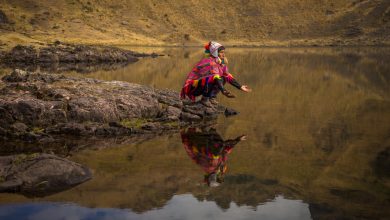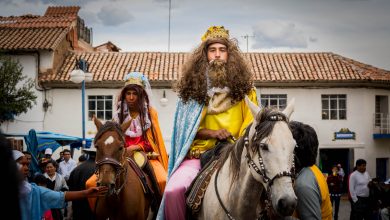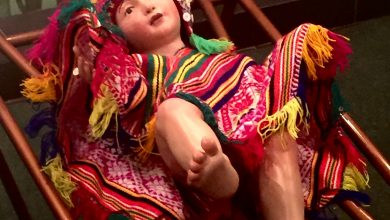We Still Need Rebellion

Young men cut down in the fire of their youth, rebels of different sorts, owners of songs cut short, Tupac Amaru, Tupac Amaru Jose Gabriel Condorcanqui and Tupac Amaru Shakur’s echoing refrains are heard even today.
The three men held more in common than their names. Tupac Amaru was the last of the Inca emperors and was considered a lineal descendant of Inti, the sun god of the Inca. He, his wife, and son were captured by the Spaniards and tried for rebellion. Although Catholic priests begged for him to be sent to Spain for trial, Viceroy Toledo, who arguably acted outside of his jurisdiction, had Tupac Amaru hung in public. The Inca’s last words were, “Ccollanan Pachacamac ricuy auccacunac yahuarniy hichascancuta.” (Divine Pachacamac, witness how the enemies shed my blood.)

Jose Gabriel Condorconqui, who claimed he was a literal descendant of Tupac Amaru, assumed the name of Tupac Amaru II in the eighteenth century and led a rebellion against the Spanish for their taxation practices, particularly toward indigenous peoples.
Tony Barber of the Financial Times wrote, “The Tupac Amaru rebellion began in the Spanish viceroyalty of Peru in 1780 and turned into the largest popular uprising in Spain’s imperial history. To this day, its impact resonates in modern Latin American politics”
Charles F. Walker penned a book entitled The Tupac Amaru Rebellion and claims, “Tupac Amaru’s wife, Micaela Bastidas, was his fierce, full partner and confidante, running the rebel camp, overseeing provisions, keeping discipline, and rooting out spies….” The power of women in revolution was underlined by her actions.

The Tupac rebellion has become a “potent symbol for indigenous rights throughout Latin America” —Publishers Weekly. Tupac was forced to watch as his wife and son were beheaded in public before his own sentence of death was carried out as the poet and singer Atahualpa Yupanqui remembers.
Atahualpa Yupanqui
El Sacrificio de Tupac Amaru
Eran las primeras claridades pintando fantasmas
en las roquedades cerca de Cuzco.
Huyendo de los vientos fríos se diluía la madrugada,
era la hora en que los cantos del gallo
cava la mina del alba.
Sombra de soldados ascendían hacia la meseta,
Ilevando a José Gabriel Condorcanqui,
al jefe de los comuneros de Tinta
el Túpac Amaru
el cacique la de la comunidad quechua,
corpulento, de honda voz vigorosa,
el hombre tierra que decidía por muchos el anhelo de todos:
LIBERTAD.
Entre las peñas,
ponchos escondidos espiaban los movimientos del opresor.
José Gabriel Condorcanqui fue sentado sobre una piedra grande
junto a un poste donde sería ajusticiado
con el procedimiento del vil garrote.
Una cuerda sujetaría su cuello
y el torniquete darfa vueltas y vueltas manejado por el verdugo.
Comenzó la ejecución pero la cuerda se trizó,
quizás gastada.
Muchos años después el poeta Abreu Gómez
transcribiría el comentario de Túpac Amaru:
“hará falta mucha cuerda
para ahorcar a todo un pueblo”.
Fue entonces -y ya el sol reinaba sobre las cumbres-
cuando José Gabriel fue sujeto con lazos por sus extremidades
a cuatro caballos cuyos jinetes, a una orden
tirarían hacia los cuatro puntos cardinales.
La honda voz del cacique no pidió ni clemencia ni favores.
Sólo crines al viento del Ande
y un sonido de espuelas prontas a hendir ijares
para cumplir una barbarie, para despedazar un corazón estaqueado.
Un gran testigo, un eterno testigo,
el sol.
Y detrás de las peñas
un puñado de ojos gastados,
desesperadamente fijos en el hombre querido,
en el amado tatai (padre) de los indios comuneros.
De pronto, la orden.
Sin voz que temblara, sin Dios que la enmudeciera,
sin un soplo de alma buena capaz de detenerla.
Y la voz estalló como una campana de muerte,
enemiga del sol y de la piedra,
enemiga del verdor y del maíz que se mecía
en las laderas allí abajo.
Ni un cóndor en el aire.
Ni un rastro de vicuña.
Só1o el viento en el Ande.
Concluído el suplicio, recogidos los lazos,
ellos fueron descendiendo la meseta momentos después,
desaparecían entre los pajonales como pumas hartos.
José Gabriel Condocanqui quedó ahí,
como un cántaro roto entre las piedras.
Pero el viento aprendió a decir su nombre y lo repitió por todas las quebradas por todo el Tawantisuyu
-los cuatro rumbos de la América india-
repitió su nombre el viento:
Túpac Amaru
Túpac Amaru
Túpac Amaru.
Though from a different continent and language, the rapper Tupac Amaru Shakur not only shared a name with the above, but also some of their power. He was likened to Christ, the descendent of the Christian God, by Ebony A. Utley, Ph.D, and author of Rap and Religion, Understanding the Gangsta’s God.
“Jesus was born into poverty in a manger in Bethlehem. Tupac was born into poverty in New York City. As poor minority babies, their families moved around a lot. Jesus’ family fled to avoid the state-sanctioned oppression that was Herod’s wrath. Herod wanted to kill Jesus simply because of who he was. Tupac’s family moved in and out of shelters to avoid the state-sanctioned oppression also known as institutionalized racism. No one wanted to help Afeni because of who she was: a former member of the Black Panther Party. Both boys’ stepfathers came from lineages filled with unscrupulous characters. There was no silver spoon for either child.”
“Under these circumstances, Jesus and Tupac matured into brazen intellectuals who spoke truth wherever there was injustice. They loved words and were master storytellers. As single men in their 20s who were self-taught and unemployed, they cared very little about others’ perceptions and fraternized with sexually licentious women, cavorted with sinners, enjoyed a good party, appreciated good wine, had tempers, used profane language with religious people, praised faithfulness over stilted forms of religious piety and honored God more than the government.
“Public demands for justice accompanied by a seeming disregard for social mores quickly placed Jesus and Tupac under constant surveillance. They were both betrayed and ultimately killed while still in their prime. Here is where the comparisons break down. Jesus was blameless. Tupac was found guilty of sexual abuse. And his body of work does indeed cosign plenty of immoral activities.”
Tupac Shakar’s 1992 interview with MTV was unearthed in light of current events in the United States. He says it takes something revolutionary” for change to happen. “Everybody is taught at school if you want to be successful, you want to be like Trump, it’s all gimme gimme gimme, crush crush crush,” he explains.
“Everybody need a little help on they way to being self-reliant,” he explains. “No independent person was born and just grew up independent. You worked and you learned teamwork and cooperation and unity and struggle and then you became independent. We have to teach that and instill that.”
“There’s no way that these people should own planes when people don’t have houses, apartments, shacks, drawers, pants”
I am fascinated how the Inca continues to live in the actions of the great hero of colonial Peru, and in how his image continues to claim value in very different circumstances today. Maybe the three Túpac Amarus are right, we still need more rebellion.





I will rebel.. I’m the Guerrero Inca. Wait for 2029… The revenge of us the Inca is coming soon…